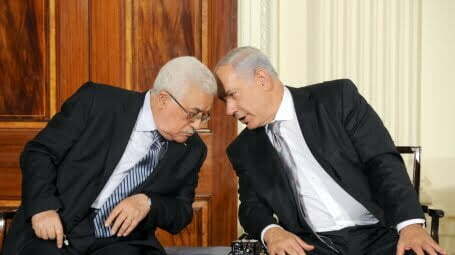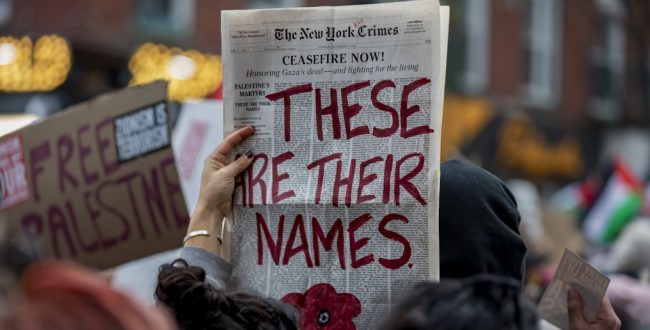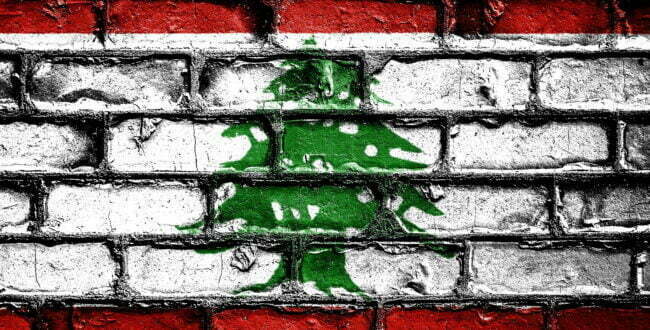There is an interesting symmetry at work right now between the Israeli and Palestinian ruling parties. Both the Likud and Fatah are calling on their leaders to adopt hawkish policies – to annex the West Bank to Israel and to cancel security coordination with Israel, respectively. Netanyahu and Abbas may be withstanding the pressure for now, but they are both weak leaders. Were they not so weak, their positions may have already led to renewed peace talks.
In response to mounting internal pressure, which peaked with the metal detector crisis on the Temple Mount last summer, Abbas formally cut security ties with Israel in July 2017. However, the coordination was renewed just four months later, according to Palestinian Police Commissioner Hazem Atallah , and likely never really halted on the ground.
The temporary move did not appease PA hawks. In January 2018, the PLO Central Committee again called on Abbas to suspend security coordination with Israel after Trump’s Jerusalem speech. Small leftwing factions such as the Democratic Front and the Popular Front started pressuring Abbas to implement the Central Committee’s decision and stop meeting with Israeli officials. The Muqata’a, the presidential headquarters in Ramallah, maintained a resolute silence.
Critical voices are now being heard within Fatah, so far by hardliners from outside the Occupied Territories. “The Palestinian street and its factions are furious over the continued security coordination with the Israeli occupation,” said Sultan Abu al-Ainain, Fatah secretary-general in Lebanon, in an interview with conservative newspaper Felesteen. “We can not declare a cut to security ties yet see coordination with the occupation continue.”
What seems to be irritating senior officials like Abu al-Ainain the most is the Palestinian leadership’s disregard for decisions made by the national institutions. “The PLO must clearly inform the citizens whether it is having difficulty implementing the decision to suspend security coordination,” said Abu al-Ainain. Yet Abbas cannot point out the elephant in the room: that security coordination with Israel serves not only his national agenda – maximum quiet in the West Bank as a precondition to economic prosperity and safety – but also his political one: eliminating Hamas, with Israel’s generous assistance.A similar dynamic is taking shape in Israel. In late 2017, the Likud Central Committee passed a non-binding resolutionin favor of applying Israeli sovereignty “to all the liberated settlement areas in Judea and Samaria.” Meanwhile, MKs Yoav Kish (Likud) and Bezalel Smotrich (Jewish Home) proposed bills to annex Ma’ale Adumim and apply Israeli law to the West Bank. Even relative moderates such as Gideon Sa’ar and Yuli Edelstein supported the move.
The Israeli side on, the belligerent role of Sultan Abu al-Ainain Was Played by Likud MK Oren Hazan, who Recently Stated at a Likud convention That he Would “not ask But demand” of Netanyahu That Israel annex the West Bank. “It’s not about the [High] Court, it’s about us,” said Hazan. “We’ve been in power for almost forty years. If we still have not succeeded in annexing Judea and Samaria and making them an inseparable part of Israel, that’s on us.
“Like in Ramallah, the prime minister’s residence in Jerusalem has largely remained silent – while pressure is quietly applied to shelve the troubling bills. Like Abbas, Netanyahu has refrained from publicly addressing the elephant in the room: applying Israeli law to the West Bank will end Israel’s democracy and isolate it internationally.
This mirror image highlights the shaky footing on which both Netanyahu and Abbas now stand. Both are facing growing internal pressure as their parties smell blood. Both are contending with populistic parliaments at odds with governments that rely on powerful legal and security institutions. These bureaucracies grant immunity and durability to the peace accords signed over two decades ago.
Translated by Michelle Bubis


















